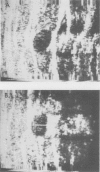Abstract
B-mode ultrasound was prospectively evaluated for its ability to preoperatively assess the adequacy of venous conduit for arterial reconstruction. Fifty-one patients who had lower extremity revascularization had real-time imaging of the saphenous and cephalic veins. Veins were judged adequate based on size, compressibility, and absence of sclerosis or intraluminal echoes. All mapped veins were explored and assessed by the standard criteria for suitability. Vein size was determined from completion angiograms, and wound complications recorded and compared with patients who had similar procedures in the 12 months before the use of vein mapping. Preoperative mapping was found to be accurate in 50 to 51 patients (98%). Vein size as determined by B-mode ultrasound correlated well with angiograms, R = 0.8539 overall with R greater than 0.9 in the last 7 months of the study. Wound complications occurred in 2% of the patients who had preoperative mapping and in 17% of the historic controls. Preoperative vein mapping using B-mode ultrasound is an accurate method of determining vein suitability for use in arterial reconstruction. It improves operative planning and can contribute to a reduction in wound complications. Veins determined to be unusable by preoperative scanning need not be explored.
Full text
PDF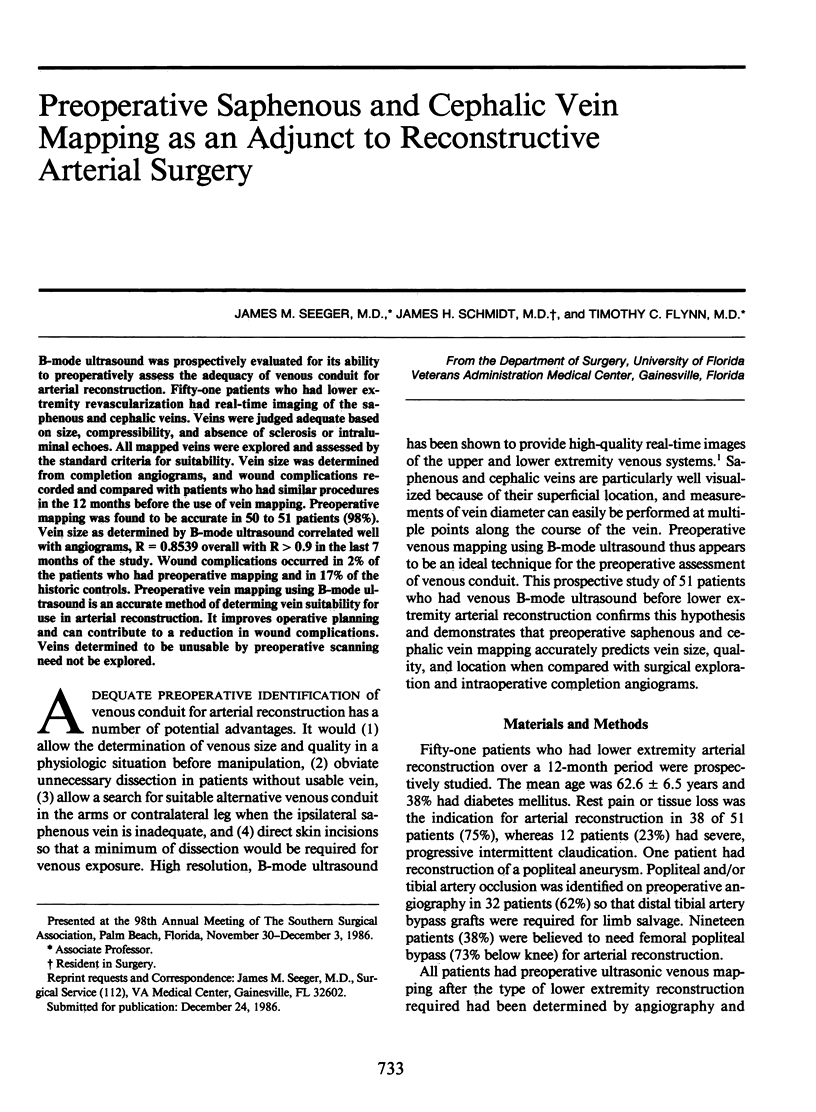
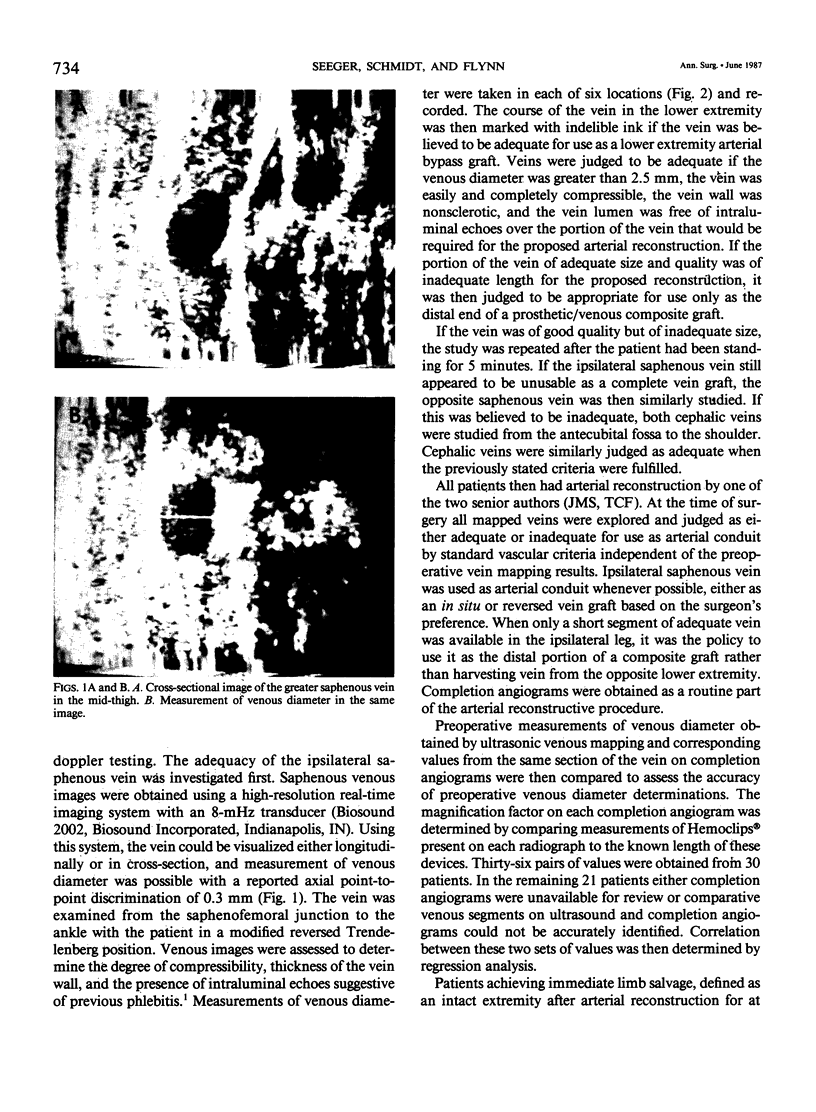
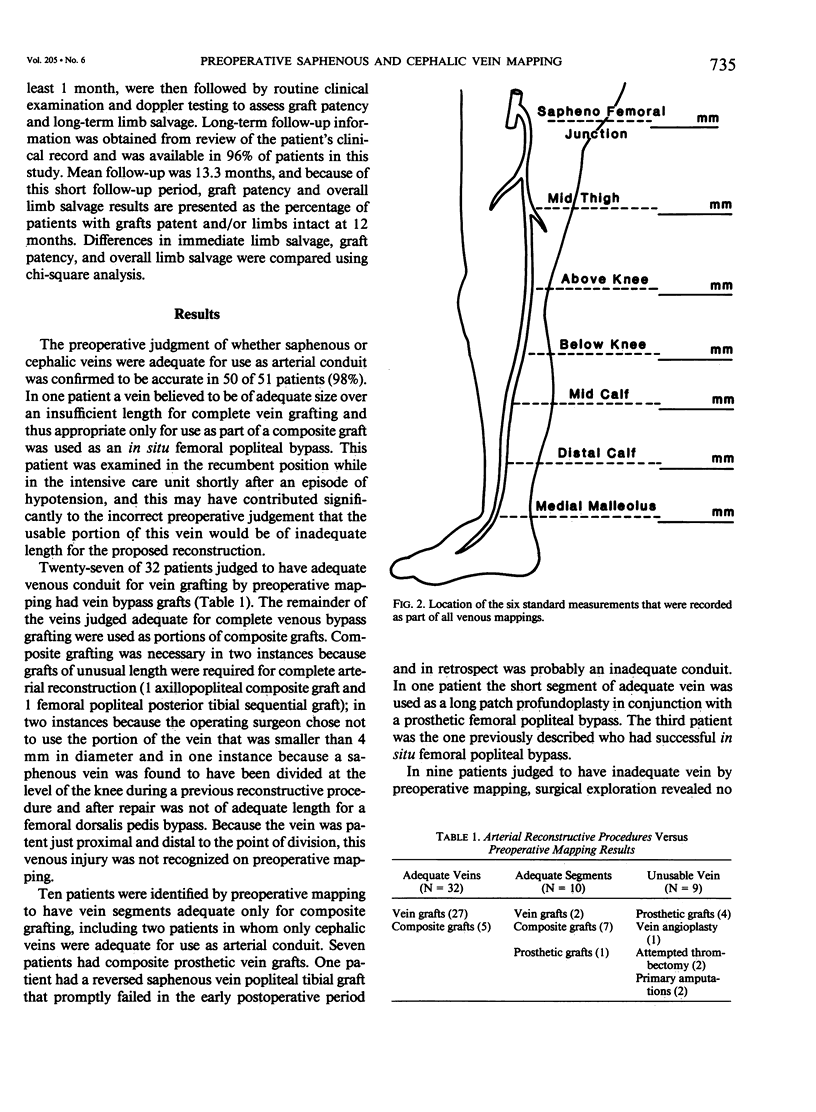
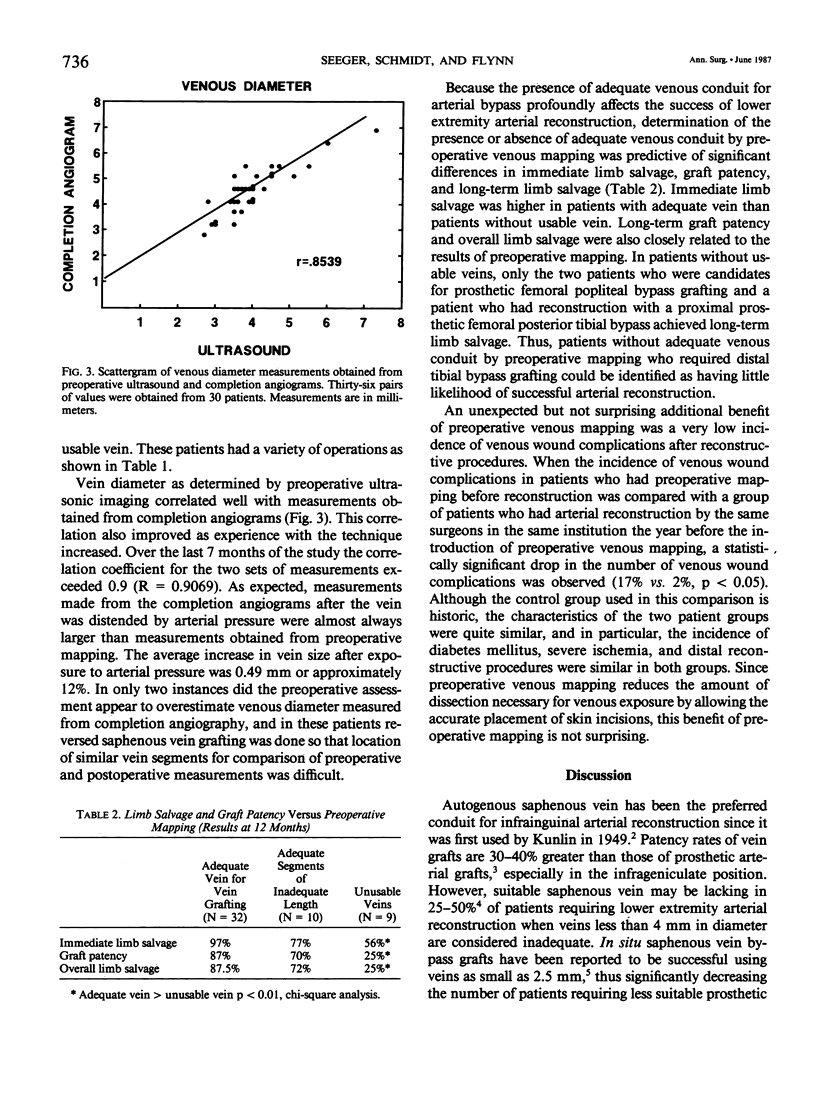
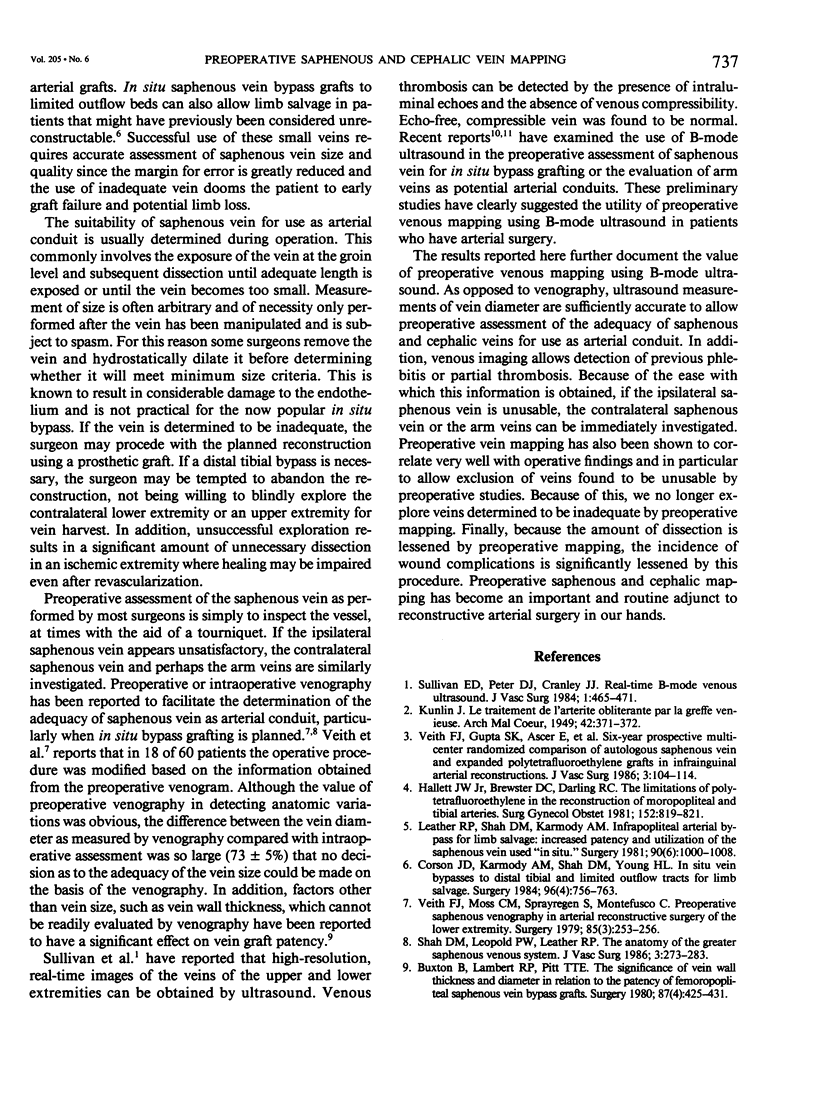
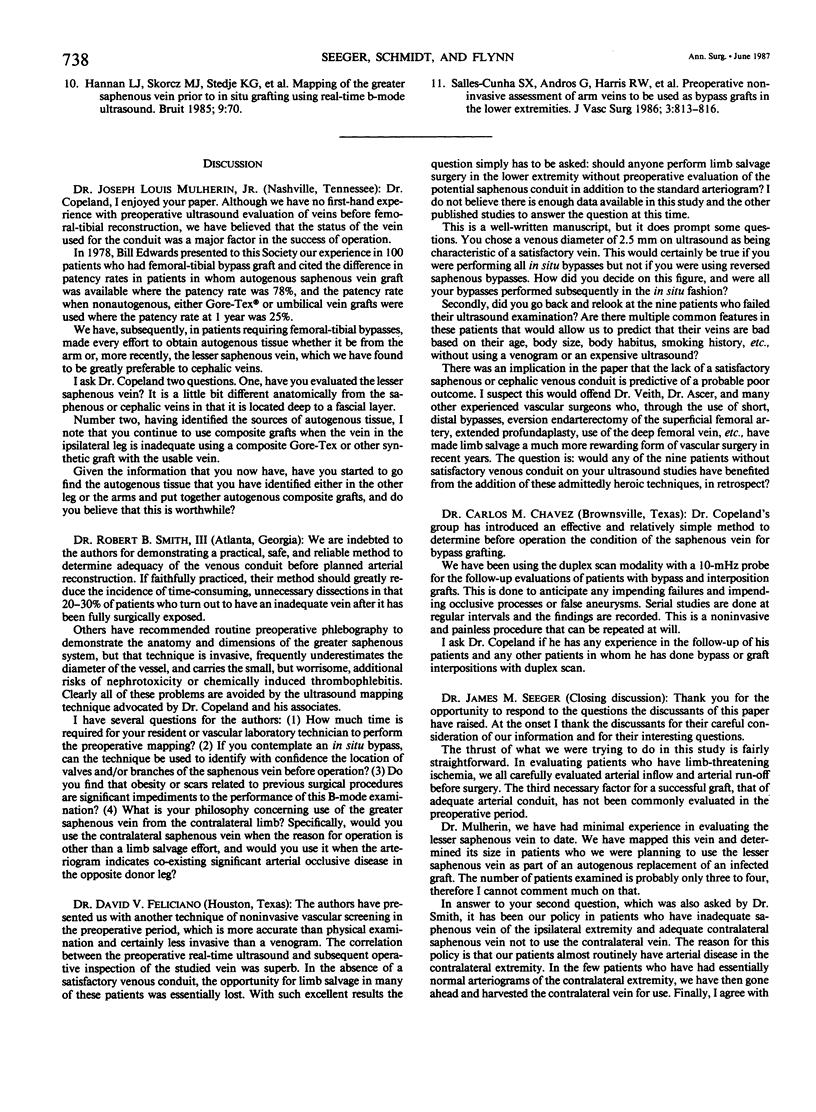
Images in this article
Selected References
These references are in PubMed. This may not be the complete list of references from this article.
- Buxton B., Lambert R. P., Pitt T. T. The significance of vein wall thickness and diameter in relation to the patency of femoropopliteal saphenous vein bypass grafts. Surgery. 1980 Apr;87(4):425–431. [PubMed] [Google Scholar]
- Corson J. D., Karmody A. M., Shah D. M., Naraynsingh V., Young H. L., Leather R. P. In situ vein bypasses to distal tibial and limited outflow tracts for limb salvage. Surgery. 1984 Oct;96(4):756–763. [PubMed] [Google Scholar]
- Hallett J. W., Jr, Brewster D. C., Darling R. C. The limitations of polytetrafluoroethylene in the reconstruction of femoropopliteal and tibial arteries. Surg Gynecol Obstet. 1981 Jun;152(6):819–821. [PubMed] [Google Scholar]
- Leather R. P., Shan D. M., Karmody A. M. Infrapopliteal arterial bypass for limb salvage: increased patency and utilization of the saphenous vein used "in situ". Surgery. 1981 Dec;90(6):1000–1008. [PubMed] [Google Scholar]
- Salles-Cunha S. X., Andros G., Harris R. W., Dulawa L. B., Oblath R. W. Preoperative noninvasive assessment of arm veins to be used as bypass grafts in the lower extremities. J Vasc Surg. 1986 May;3(5):813–816. doi: 10.1067/mva.1986.avs0030813. [DOI] [PubMed] [Google Scholar]
- Shah D. M., Chang B. B., Leopold P. W., Corson J. D., Leather R. P., Karmody A. M. The anatomy of the greater saphenous venous system. J Vasc Surg. 1986 Feb;3(2):273–283. [PubMed] [Google Scholar]
- Sullivan E. D., Peter D. J., Cranley J. J. Real-time B-mode venous ultrasound. J Vasc Surg. 1984 May;1(3):465–471. doi: 10.1067/mva.1984.avs0010465. [DOI] [PubMed] [Google Scholar]
- Veith F. J., Gupta S. K., Ascer E., White-Flores S., Samson R. H., Scher L. A., Towne J. B., Bernhard V. M., Bonier P., Flinn W. R. Six-year prospective multicenter randomized comparison of autologous saphenous vein and expanded polytetrafluoroethylene grafts in infrainguinal arterial reconstructions. J Vasc Surg. 1986 Jan;3(1):104–114. doi: 10.1067/mva.1986.avs0030104. [DOI] [PubMed] [Google Scholar]
- Veith F. J., Moss C. M., Sprayregen S., Montefusco C. Preoperative saphenous venography in arterial reconstructive surgery of the lower extremity. Surgery. 1979 Mar;85(3):253–256. [PubMed] [Google Scholar]



